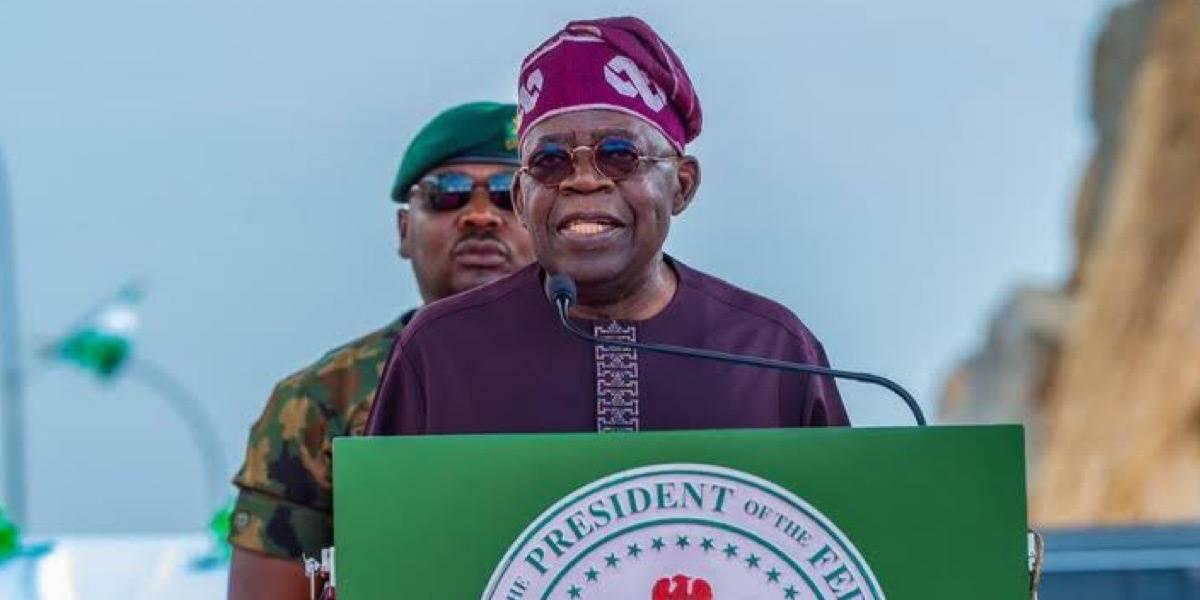News
“We Were Heading for Disaster!” – Tinubu Reveals How He Pulled Nigeria Back from the Brink

Marking his second anniversary in office, President Bola Ahmed Tinubu delivered a confident national address on May 29, asserting that his administration has successfully steered Nigeria away from collapse. Tinubu highlighted major strides in economic stability, national security, infrastructure, and healthcare—despite fierce criticisms from opposition parties.
Reflecting on his tenure so far, Tinubu said the nation was facing serious turbulence when he took office two years ago. “You handed me this responsibility at a time when our country was facing historic challenges,” he noted. He credited his administration’s tough early reforms—removal of fuel subsidies and merging of multiple forex rates—as crucial in averting an economic meltdown.
“These policies were essential,” Tinubu emphasized. “Fuel subsidies and forex manipulation were strangling Nigeria’s future.” Though controversial, he claimed the reforms have started yielding real gains, including growing GDP numbers and new foreign investments.
Tinubu cited that Nigeria’s real GDP grew by 4.6% in Q4 2024 and maintained an annual growth of 3.4%—a ten-year high. He claimed these numbers prove Nigeria’s economy is bouncing back.
Opposition parties, however, sharply disagreed. The PDP slammed his administration as a “monumental disaster,” while the Labour Party said Nigerians are enduring “untold hardship.”
But Tinubu defended his decisions, warning that avoiding reform would’ve led to runaway inflation, debt defaults, and widespread shortages. “We chose the harder but necessary path,” he said, acknowledging the public’s suffering while promising long-term prosperity.
He stated that inflation was beginning to ease, pointing out recent reductions in rice prices and basic goods. He also celebrated over $8 billion in new investments flowing into the oil and gas sector and a 400% increase in oil rig counts compared to 2021.
According to Tinubu, fiscal discipline is improving. The country’s deficit dropped from 5.4% of GDP in 2023 to 3.0% in 2024, revenue rose past ₦6 trillion in Q1 2025, and Nigeria’s foreign reserves jumped from $4 billion to $23 billion within a year. He also highlighted that debt service-to-revenue ratio dropped from 100% to under 40% by 2024.
In a push for fair taxation, Tinubu announced that food, education, healthcare, rent, public transport, and renewable energy will now be exempt from VAT. A Tax Ombudsman will be introduced to protect small businesses and ensure fairness.
Beyond the economy, the president spotlighted achievements in healthcare, education, youth empowerment, and infrastructure. Over 1,000 Primary Health Centres have been revamped, with 5,500 more under renovation. Free dialysis and cesarean services have been introduced, and health insurance coverage has expanded by 4 million people in two years.
On education, Tinubu noted improvements in infrastructure and new student loan schemes. Youth-focused digital job programs and MSME support initiatives are also underway.
He lauded NASENI’s tech advances—from assembling electric vehicles to training Nigeria’s first female drone engineers. He also mentioned major national road projects, such as the Lagos-Calabar Coastal Highway and Second Niger Bridge access roads.
On energy, he said Nigeria is upgrading its grid and expanding solar projects to ensure more reliable electricity across homes, schools, and hospitals.
In terms of national security, Tinubu credited better coordination among agencies and intelligence-led operations for reclaiming territories previously held by bandits, particularly in the North-West. “Farmers have returned to their fields, and highways once deemed unsafe are now passable,” he said.
Tinubu also teased Nigeria’s upcoming Motherland Festival, an event to spotlight the nation’s culture and attract global tourists and diaspora investments. He introduced new measures such as diaspora bonds and a non-resident BVN to help overseas Nigerians contribute more effectively to national development.
In closing, Tinubu acknowledged the nation’s struggles but stood firm on his course: “The difficulties are real, but so is the progress. We are laying the foundation for a Nigeria that works for all.”
RECOMMENDED FOR YOU
Nigeria Under Siege: CUPP Declares Tinubu’s Rule the Darkest in History






























